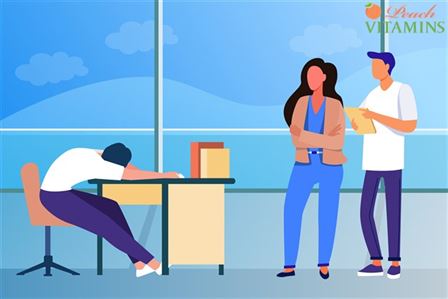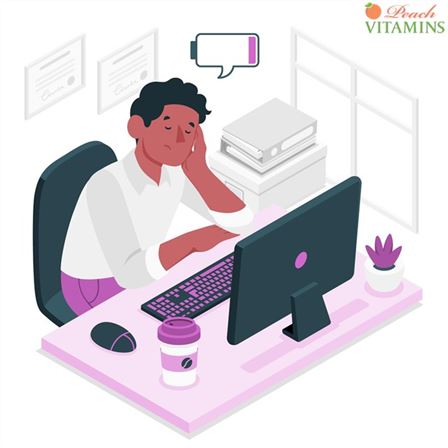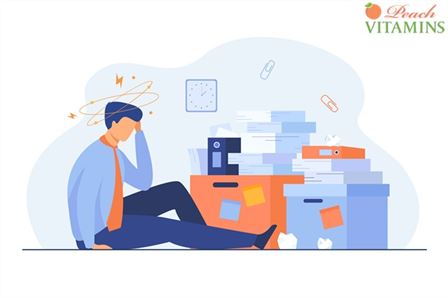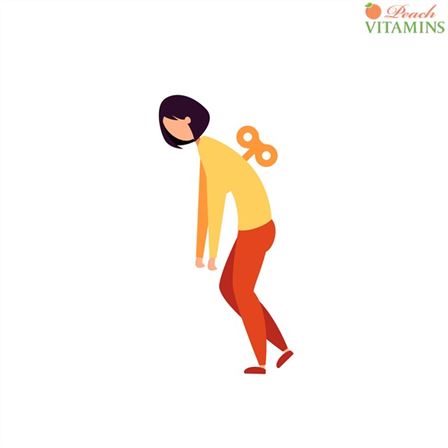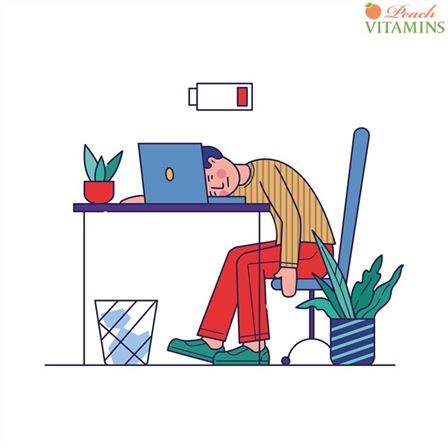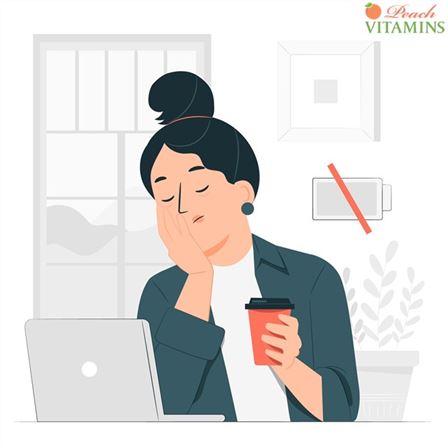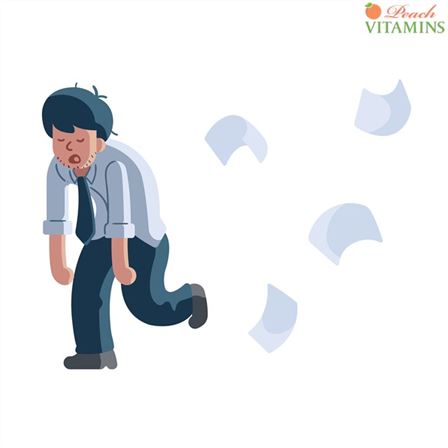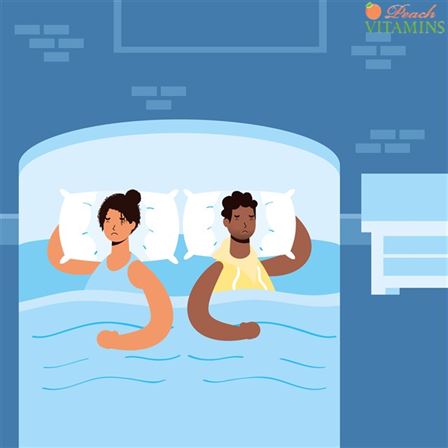Your body needs iron for several reasons, including making new red blood cells. They carry oxygen throughout the body by transporting it through the blood vessels. Vitamin C helps your body absorb more iron from foods such as red meat and beans. Orange juice and broccoli help too!
Low iron levels can be a common problem for many of us. But why does it happen, and how can we get the proper levels of iron? What are the options available to get them back on track? You might find this article interesting.
Iron Deficiency Anemia
Iron absorption depends on multiple factors, such as hemoglobin, ferritin, and vitamin C. Eating foods rich in both vitamin C and zinc helps boost absorption rates for these nutrients. However, if you have an iron deficiency, your body will not absorb it efficiently even if you consume mixed source iron.
When iron is deficient, your body cannot produce enough hemoglobin. Because there’s not enough oxygen-carrying around the body, blood flow slows down. It could lead to tiredness, weakness, shortness of breath, palpitations, and other symptoms.
The most important thing to remember about getting enough iron is to eat plenty of foods rich in vitamin C and zinc. Sources of iron include orange juice, broccoli, spinach, beans, lentils, nuts, seeds, tofu, tomatoes, peppers, avocados, and strawberries.
You may have heard that vegetarians don’t need to worry about getting enough iron because they tend to eat lots of iron-rich plant foods. However, vegans do still need to take supplements if they want to avoid iron deficiencies. Vegans often choose to take a supplement containing only non-heme iron. Heme iron is more challenging for us to absorb than non-heme iron.
Iron Deficiency Anemia In Women: What Causes Iron Levels to Go Low?
The risk of iron deficiency increases during pregnancy. A study published in the journal Obstetrics and Gynecology showed that nearly half of pregnant women had low iron levels. Another study published in the Journal of Clinical Gastroenterology showed that almost 60 percent of pregnant women were at risk of developing anemia. Iron deficiency affects approximately 20 percent of pregnancies in the United States. Many doctors recommend that pregnant women take prenatal vitamins containing iron.
Women who are breastfeeding are also at high risk of iron deficiency. Breast milk contains minimal amounts of iron, so your body needs to store up iron reserves to meet its daily requirement. Your baby also gets iron from breast milk, so it is essential to keep your iron levels healthy while breastfeeding.
Other Causes Of Low Iron Levels
Some other conditions can cause low iron levels. They include:
Hemochromatosis – a genetic disorder that makes the body hold onto too much iron.
Chronic kidney disease – a condition where the kidneys fail over time. It causes low blood pressure, leading to poor kidney function and less protein in the urine. Proteinuria can interfere with iron absorption.
Celiac Disease – an autoimmune disease that damages the lining of the small intestine. People with celiac disease usually develop diarrhea, abdominal pain, and weight loss after eating gluten. Gluten is a protein found in grains like wheat, barley, and rye.
Liver cirrhosis – a condition where scar tissue forms inside the liver. Scarring reduces blood flow, and nutrients reach the liver.
Pernicious Anemia – a condition that causes the stomach to make fewer cells. Pernicious anemia occurs when the body does not produce sufficient amounts of vitamin B12.
Vitamin D Deficiency – a lack of vitamin D in the body can cause low iron levels. Vitamin D helps regulate calcium metabolism and bone health.
Lactose Intolerance – a digestive problem caused by the inability of the body to digest lactose. Lactose intolerance can reduce the ability of the gastrointestinal tract to absorb iron from food.
Thyroid Problems – Thyroid problems can lead to low iron levels. Hypothyroidism is a condition where the thyroid gland produces insufficient amounts of hormones. Medications are available to treat it. Another type of thyroid disorder is hyperthyroidism. The thyroid gland produces too much hormone. Thyroid hormone production can change how well the body absorbs iron.
How Is Iron Deficiency Anemia Treated?
If you think your iron levels might be low, your doctor will probably first try to treat you for an infection. Other treatment options include:
- Taking iron supplements
- Avoiding foods that contain phytates
- Getting regular exercise
- Reducing stress
- Drinking plenty of water
- Eating foods rich in vitamin C
- Adding foods like spinach, beans, broccoli, lentils, and dark chocolate to your diet
- Stopping smoking
Side Effects Of Low Iron
Low iron levels can have serious side effects. These include:
- Fatigue – feeling tired or weak all the time
- Hair Loss – Hair loss may start on the scalp and spread to other body areas, including eyebrows, eyelashes, and pubic regions.
- Nail Changes – Nails become brittle and break easily
- Mouth Sores – Mouth sores may appear around the lips or gums
- Skin Rash – Skin rash can occur anywhere on the body but most often affects the face and neck
- Headaches – Headaches may occur if there is increased pressure on the brain due to low iron levels.
- Trouble Sleeping – Trouble sleeping can happen when iron levels drop too low.
- Headaches – especially around the eyes
- Dizziness – may feel lightheaded or faint
- Numbness – feeling numb or tingly fingers, toes, lips, tongue, face, arms, legs, or feet
- Weakness – muscle weakness
- Shortness of breath – breathing becomes difficult
- Difficulty concentrating – thinking processes become slow or unclear
- Depression – feeling sad, hopeless, or helpless
- Memory lapses – being forgetful or confused
- Irregular heartbeat – heart rate is irregular
- Restless legs syndrome– restless leg movement is often accompanied by feelings of heaviness in the limbs. It can occur at night while asleep or during the day when awake and is more likely to happen in iron-deficient people.
Low iron levels may increase your risk of heart attack and stroke. You may feel tired, weak, or have trouble thinking clearly if you suffer from anemia. You could also have less energy than usual, feel irritable, or have trouble sleeping.
Symptoms of iron deficiency often go away once you get enough iron in your system. However, they may come back if you don’t continue getting adequate amounts of iron.
What Foods Are Good Sources Of Iron?
The following foods are good sources of iron:
Beans – chickpeas, black-eyed peas, kidney beans, navy beans, pinto beans, white beans
Broccoli – green, red, yellow, purple
Carrots – raw, cooked, juice
Fish – salmon, tuna, sardines, mackerel
Fruits – apricots, cherries, plums, peaches, strawberries
Leafy Greens – kale, collards, turnip greens, mustard greens, spinach, Swiss chard, broccoli, Brussels sprouts, cabbage, brussels sprout leaves
Iron from Meat – beef, pork, lamb, turkey, chicken, ham, bacon, sausage, liver, organ meats, bone broth
Nuts – Almonds, cashews, hazelnuts, walnuts
Oats – steel cut oats, quick-cooking oatmeal
Yogurt – plain, Greek-style
Zucchini – raw, steamed
Dietary iron is found mainly in animal products; plant foods are poor sources of dietary iron. Vegetarians must eat fortified cereals, bread, and other grain products to meet daily needs. Fortified cereals are available in both ready-to-eat and dry forms. These cereals are convenient because they do not require preparation.
Fortified cereals contain iron, folic acid, calcium, phosphorus, zinc, and vitamins A, B6, D, E, and K. cereals are high in fiber and usually lower in fat than most other food groups. They provide essential nutrients and help maintain overall health.
Which Foods Should I Avoid?
Certain foods are known to interfere with the absorption of iron.
Alcohol – Beer, wine, liquor
Caffeine – coffee, tea, cola drinks
Sugar – candy, cakes, cookies, ice cream
Food additives
Iron-rich foods that cause flatulence
Soy products
Wheat gluten
Other factors that affect iron absorption include the presence of other nutrients in the food, such as zinc, calcium, magnesium, folate, and vitamin B12. In addition, the amount of fiber present in foods affects the ability of the body to absorb iron.
Fiber helps the body absorb vitamins and minerals by binding them together in the digestive tract. High-fiber diets help prevent constipation, which can make it harder for the body to absorb iron.
Reasons For Low Iron Levels: Highly Processed Foods May Be Bad For Your Health
Processed foods are usually refined flour, sugar, salt, fat, and other additives. They’re often high in calories and may even cause weight gain. Eating processed food increases your chances of developing health conditions like diabetes, obesity, and cardiovascular disease.
You may want to limit your consumption of these types of foods because they aren’t very nutritious. When you eat them, you’re also increasing your calorie intake.
Does Lack of Iron Cause Weight Gain?
Lack of iron may be one reason many people have difficulty losing weight. The body uses iron to produce energy and carry oxygen throughout the body. It’s also an essential part of building muscle mass.
If you don’t get enough iron, your body will use stored fat instead of muscle tissue when building new cells. Consequently, you’ll store more fat around your middle.
Lack of iron may contribute to weight gain. You might think that if you eat less food, you’ll lose weight. But if you don’t replace those calories with healthy ones, you could end up gaining weight.
Severe iron deficiency anemia can lead to severe complications if left untreated. The first step to treating iron deficiency anemia is to identify its cause. Identifying the problem will lead to the development of a treatment plan.
What Causes Anemia That Is Not Iron Deficiency?
Anemia that does not result from an iron deficiency usually involves another type of blood cell called erythrocytes. Erythrocytes carry oxygen throughout the body and remove carbon dioxide from the bloodstream. The number of these cells in the blood determines how much oxygen gets delivered to different body parts.
When fewer erythrocytes are in the blood, more oxygen must be carried to deliver the same amount of oxygen to various organs. This condition is called hypochromic microcytic anemia.
Best Liquid Iron For Anemia
Iron supplements are available over the counter at drugstores and supermarkets. They contain either elemental iron or ferrous sulfate. Both forms of iron are effective if taken orally, but only essential iron is absorbed into the bloodstream. Iron deficiency anemia occurs when there aren’t enough red blood cells to carry oxygen throughout the body.
If you decide to use liquid iron, follow the directions on the label carefully. Take one teaspoon of liquid iron per day. Do not exceed the recommended dose. Be sure to drink plenty of fluids while using liquid iron; otherwise, you may get diarrhea.
People with iron deficiency will probably need to take supplemental iron for several months before feeling better. You might want to start taking iron supplements after giving birth if you had a baby within six months ago. You might also consider taking iron supplements if you recently stopped using birth control pills.
[wps_products product_id=”1638128353315″ html_template=”product.php”]

